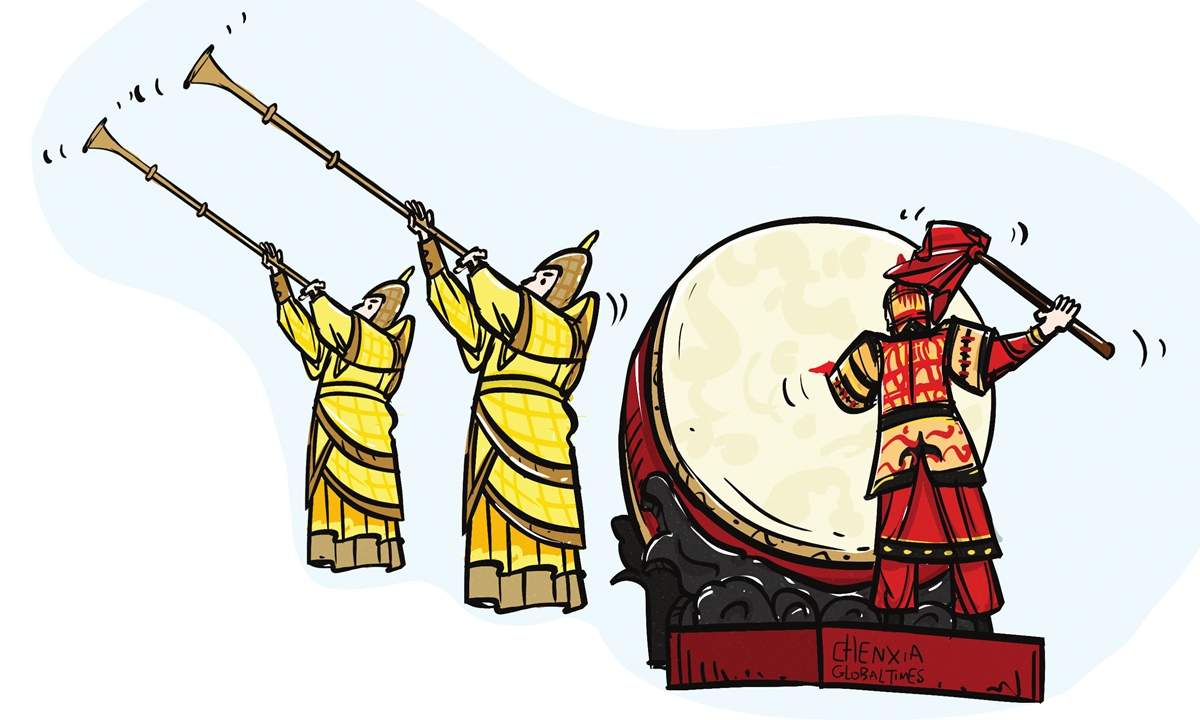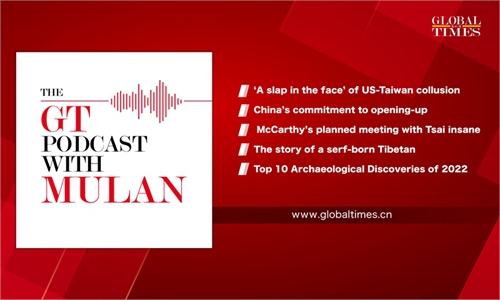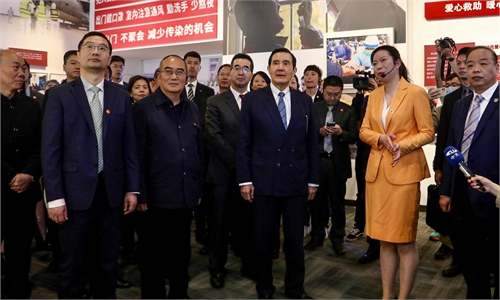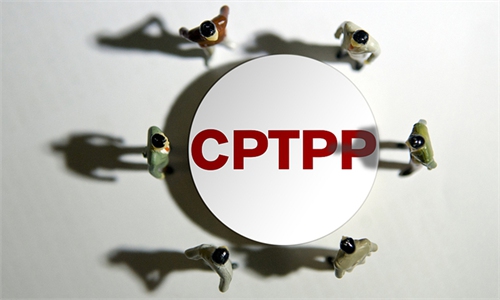
Illustration:Chen Xia/GT
As the Qingming Festival, which falls on Wednesday, drawings near, people on both sides of the Taiwan Straits are preparing to pray to their ancestors or their deceased family members on this day. It is a folk custom of the Chinese nation that has been passed on for more than 2,500 years and demonstrates that the Chinese mainland and Taiwan share the same cultural roots.
Apart from local rituals, many people from the island of Taiwan also take this opportunity to pay their respects to their ancestors in the Chinese mainland.
On Saturday, former Taiwan leader Ma Ying-jeou came to his ancestral home in Central China's Hunan Province to pay his respects to his late grandfather for the first time in his life. He is also the first former Taiwan leader to step foot in the Chinese mainland in 74 years.
"My years-long dream has come true!" he said emotionally when he arrived at his grandfather's tomb.
Ma's grandfather Ma Li'an, was a country sage who always liked to do charity for the local people. In 1910, he helped collect funds to build a wharf for locals to cross the river.
In the eulogy to his grandfather, Ma read in the Hunan dialect: "Your testaments taught us to have self-esteem and self-reliance, and to be helpful to others. They are the most valuable and inexhaustible assets in our lives."
He also quoted The Analects of Confucius: "If everyone handles the funeral of their parents with care and remember their ancestors, then the social conduct of honesty and sincerity will prevail," emphasizing that this is an important part of the moral education that is shared by people across the Straits.
Although Ma has been away from the mainland for more than seven decades, it is remarkable that he still cherishes the same values as the people of the mainland and that this is what finally brought him back in spite of some setbacks.
Besides worshiping his own ancestor, Ma, former chairman of the Chinese Kuomintang (KMT), also paid tribute at the Dr Sun Yat-sen's Mausoleum in Nanjing, East China's Jiangsu Province.
Sun was a pioneer of the Chinese democratic revolution and the founder of the KMT. He struggled for the rejuvenation of the Chinese nation throughout his life.
After the visit, Ma wrote, "Strive to revitalize the Chinese nation peacefully" in traditional Chinese calligraphy. He stressed that both sides of the Taiwan Straits belong to the Chinese nation, and their people are all the descendants of the Yan and Yellow emperors. Revitalizing the Chinese nation is an inevitable responsibility of the Chinese people across the Straits that must be fulfilled. His statements represent the common aspiration of all the people on both sides, which is the best way to remember Sun.
On the day of the Qingming Festival, praying to Chinese remote ancestors is also a custom shared across the Straits, including the Yellow Emperor, the first ancestor of the Chinese nation. According to media reports, a ritual ceremony will be held at the Yellow Emperor's Mausoleum in Northwest China's Shaanxi Province. Yok Mu-ming, former chairman of the New Party in Taiwan, together with more than 50 people from all walks of life will participate in the ceremony.
Worshiping Confucius is another shared long-time tradition. Every year, the commemoration is held in all the Confucius Temples in both the mainland and Taiwan. In 2006, the first joint activity was held; and in 2008, Ma Ying-jeou attended the ceremony, becoming the first Taiwan leader since 1945 to attend such a ritual at Taipei's Confucius Temple.
Confucius was a great philosopher and educator in ancient China. The ideas of filial piety, co-existence, and having empathy for others that he advocated more than 2,000 years ago constitute the cultural roots shared by people on both sides of the Taiwan Straits. Despite some disruptions, these cultural roots have built a solid foundation for understanding and communication between the two sides. It demonstrates the fact that both sides belong to a big family that no one can separate.



